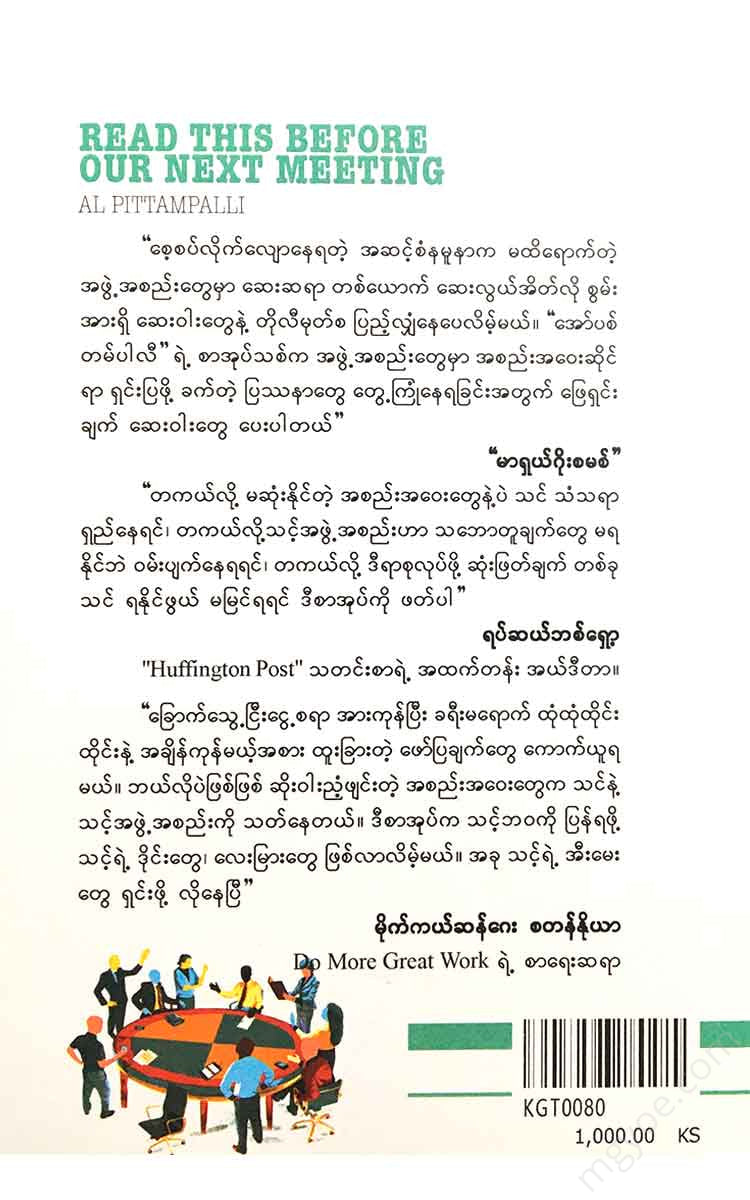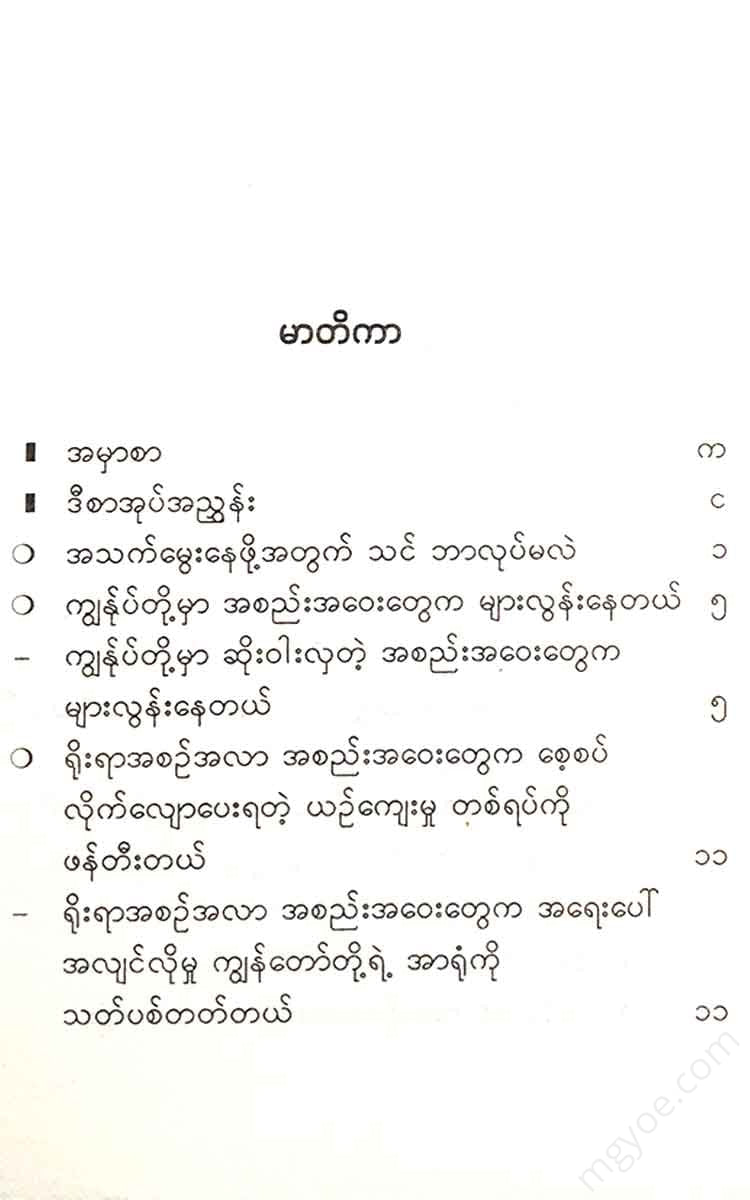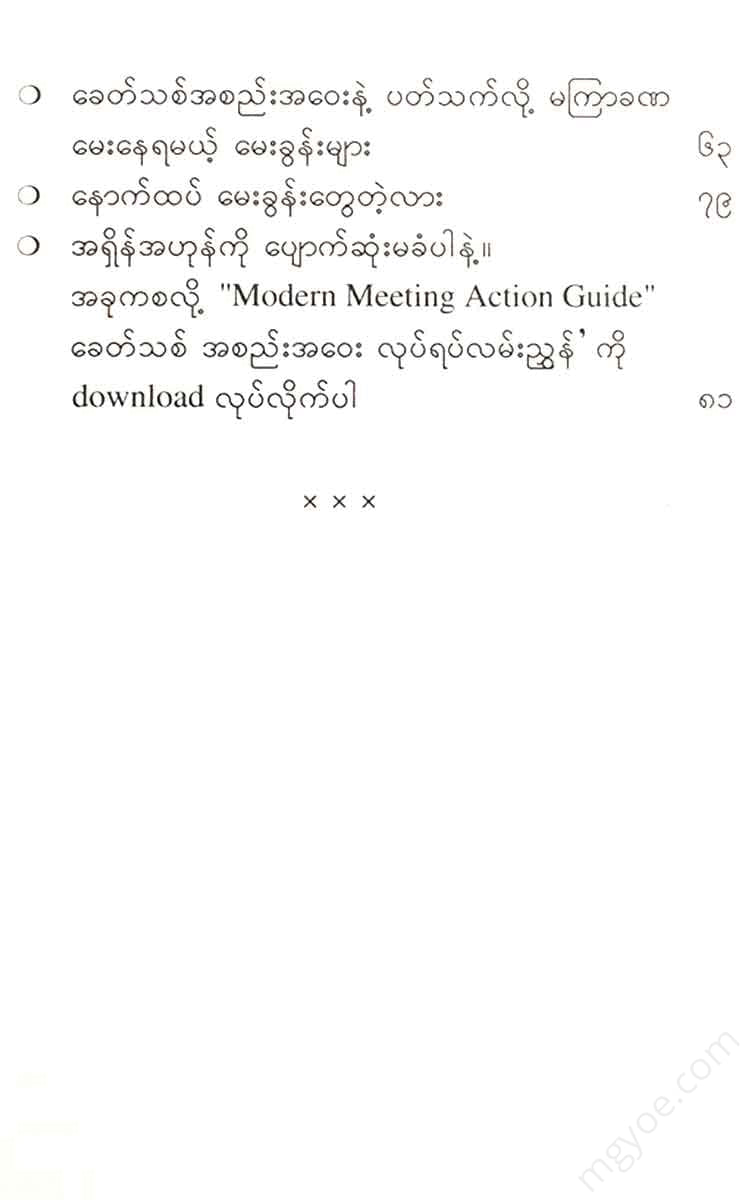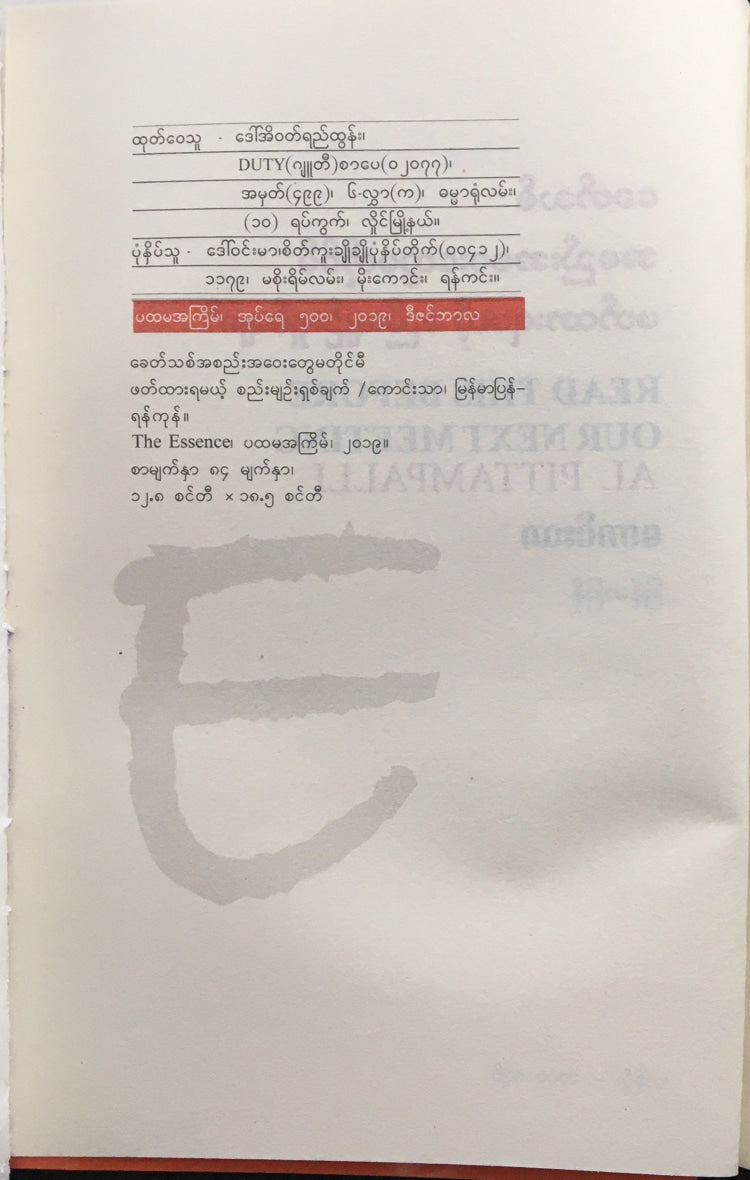စိတ်ကူးချိုချိုစာပေ
Good - Eight Rules to Read Before Modern Meetings
Good - Eight Rules to Read Before Modern Meetings
Couldn't load pickup availability
This book index
Traditional meetings have become a tool for mob violence and disruption.
"May modern meetings last for centuries"
The average American office worker spends 11 hours a week sitting in meetings. And those long conference tables aren't making us more productive. They're making us worse.
Traditional meetings reduce efficiency. They kill urgency. They only cultivate compromise and contentment.
Worst of all, a dysfunctional meeting culture changes what we focus on, how we focus on it, and the decisions we make.
But here's a solution: meetings that are shorter, more purposeful, and less frequent. This is called the "modern meeting standard."
By following eight simple, corrective rules, there's no reason to attend another useless meeting.
The book "Read this before our next meeting" is calling for action that you and (your boss) need to take.
Someone asked me what I did for a living. I felt like I was being pressured to answer. If he wanted to know my job title or what factory I worked in, all I had to do was fill out my business card and address. But the person asking seemed sincere. He just wanted to know what I did most days. So I had to be honest. I went to meetings.
I just say I'm making a living from it. Very bad meetings.
I don't know how I found myself here.
The traditional blue-collar meeting after blue-collar meeting is eroding our organization. We allow this to happen every day. We are used to long, boring, and purposeless meetings.
Our curiosity that there might be a better option is fading into the background.
If you wake up for a moment, you will understand two undeniable facts.
1. We have meetings.
There are too many.
2. We have terrible meetings.
There are too many.
Meeting experts have been telling us for years that we have too many meetings.
They said. These experts warn us that we should not sit in meetings every time we are reminded that there is a meeting. But we can't. If we are told that there is a meeting scheduled for the day, we don't hesitate, we go to it today or tomorrow. This is the tragedy of ordinary life. We feel that everyone benefits from calling meetings. But few benefit from attending meetings.
We've been around for a long time, not worrying about bad meetings. If we were to be as careless in the operating room as we are in our meetings, patients would die. If we were to add a little bit of planning to our meetings in a restaurant kitchen, like I do, dinner would never be served.
But if that's the end of it, I won't be writing this manifesto.
No, I can't share it with you while we're in a meeting. Because I've noticed something even more shocking than the amount of time wasted in our organization.
Worse than wasting time is the culture of sitting in useless meetings that has made us
Because it changes. Our meeting culture has changed what we should focus on, how we should focus on it, and most importantly, it has left us confused about what decisions to make.
Yes, meetings are important. In simple organizations, they don't need many. In industrial organizations, they are not needed very often. In organizations that struggle with change, they are not needed at all.
But in our organizations and in modern organizations everywhere, meetings are the levers that accelerate the movement of change. Meetings are the way we make changes. Change is how we make progress.
We work in a complex business environment, full of problems. Meetings are inventions that are designed to facilitate the necessary collaboration.
We need meetings to make informed decisions with confidence. This includes decisions that our teams must approve to effectively collaborate on complex projects.
However, we don't need high-level meetings, we just need conventional meetings, meetings that will actually make our organizations active and weak.
Our meetings are all about getting involved in something. We've fallen victim to the traditional meeting process. We're given bureaucratic excuses to work together and we're caught up in the "kabuki" dance of company politics. Now we're addicted to these meetings like they're drugs, and we're distracted from the work we should be doing.
But this new way of thinking is not about being blamed. It's about being given the opportunity. By changing a simple strategy, by breaking down the traditional meeting isolation, we can prepare for the way we organize projects and make decisions, and get things done. We can reinvent the meeting, so that creative work can be turned back into a collaborative effort of our own choosing.
But this is something we will have to choose.
What can we do in a world with so little meaning?
In a world where there is little meaning, we need to spend more time on our real work, on the things that really drive our organization forward. The work we do will change our company, our customers, our stakeholders, and our programming, design, sales, writing, and art.
Finally, we'll have time to do the things that matter. Not only will we be able to do urgent, urgent tasks, but we'll also be able to mentor a colleague, connect with people in our factory, or practice delivering our presentations to the board.
During the day, you may have more time to spend on initial work and innovation on new projects.
Instead of drowning in the old, seemingly never-ending mess. Most of all, we live in a world where traditional meetings have disappeared, and we have to rely on them to make difficult decisions.
Only when these traditional meetings are abandoned will easy compromises and the ability to rely on each other emerge.
I am writing this letter to you in the context of serving you. This is not just for me. It is for the benefit of all of us and for the entire organization.
Now I have a solution. I have a project I want to propose. There is a new level of survival that needs to be nurtured.
But first, let's talk about the two most worrying dangers of our current meeting system.











